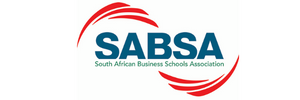How can we prepare to meet the future work and education landscape which is rapidly transforming at an unprecedented rate? On the 24th May 2019, the Johannesburg Business School hosted an interactive seminar on the future of work and learning to engage with the various opportunities that Industry 4.0 presents across a variety of sectors.
The Fourth Industrial Revolution also presents a host of challenges in uplifting South African industries to become major role players on a global scale. The experts that participated in this event included: Prof Lyal White, the Senior Director of Johannesburg Business School; Glen Gillis, Managing Director of Sea Monster Entertainment; Kieno Kammies, AI and ESD Strategist and Consultant; Colleen Millar, Executive Head and Director of Rallim Prep; as well as Vish Sanghani, Global Head of Learning: Corporate and Investment Banking at Standard Bank.
The panelists were in agreement that a disruption of traditional models in workplaces and in classrooms needs to be implemented to ensure that South Africa stays competitive and embraces the wealth of opportunities that technologies such as Artificial Intelligence, Machine Learning, Virtual Reality, and robotics have to offer.
In the current epoch the emphasis on skills, such as interdisciplinary thinking and learning, critical thinking and problem-solving skills, adaptability, and creativity, is crucial. An understanding of how to bridge the gap between human and machine in increasingly augmented environments is necessary for companies to remain competitive.
Kieno Kammies said that the future of learning is an “education system which can pivot as fast as technology does”. He also believes that harnessing technology to facilitate the engagement of micro enterprises with big supply chains will significantly boost South Africa’s GDP.
Colleen Millar discussed how innovation needs to be addressed in the South African schooling system. She presented her model of the Rillam Modern Learning Environment and the innovative project of educating learners for jobs that do not yet exist. Colleen identified the importance of customising the education process to accommodate different learning styles and speeds of learning. In this process the learners become an active part of the learning process which fosters critical engagement with the content. The future might be uncertain, but the important skill of adaptability will ensure that learners can flexibly navigate through each field of work.
Glenn Gillis endorsed using gaming as a method of learning. He said that “games make learning voluntary”. The days of learning everything about business via a highly theoretical textbook are over as gaming can be used as a tool to teach entrepreneurship and to develop a business-like acumen based on scenarios that the avatar in the game encounters. The convergence of technology, art, storytelling, and science provides the ideal platform to assess employee’s problem solving and critical thinking skills. The future of psychometric testing is moving from Western-centric models based on the nuances of language to a Games-based Assessment referred to as gamified testing where users are tested based on their responses to situations when immersed in a game.
The business landscape is changing completely with technology as the driving force; however, the human capabilities of versatile employees are businesses most valuable asset at this point in time. Vish Sanghani focused on developing young talent by emphasising the importance of leadership, and embracing the future of learning. He said that “anything that can be disrupted will be disrupted” by technological advances.
He uses an empowerment-based model, rather than a strictly hierarchical model, to engage with employees because the future of the workplace necessitates knowing staff members and gaining insight from their understanding of organisational practices. This reciprocity encourages diverse methods of working because the future augmented workforce relies on a strong understanding of adaptability and flexibility.
The Johannesburg Business School situates the issues surrounding the Fourth Industrial Revolution within a South African context. The core concept of their innovative MBA which will be implemented in 2020 is to be unique in its inter-disciplinary approach and to be disruptive to outdated paradigms of learning. This MBA is specifically crafted for the African landscape to ensure that small to medium businesses will grow and flourish, while also developing a global consciousness. The workplace of tomorrow is built on creativity, collaboration, storytelling, and adaptability. Join the Johannesburg Business School to take part in the revolution.










